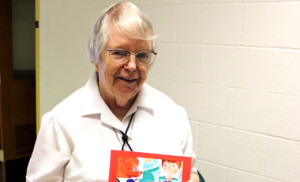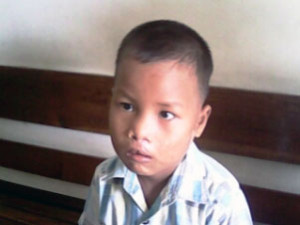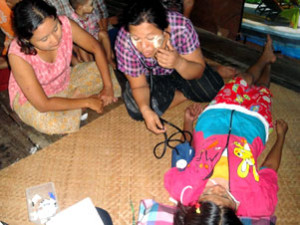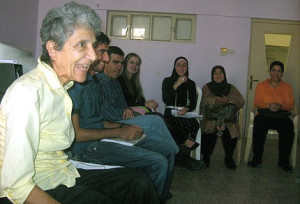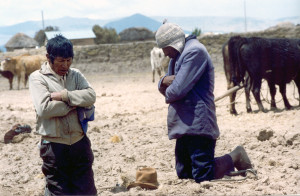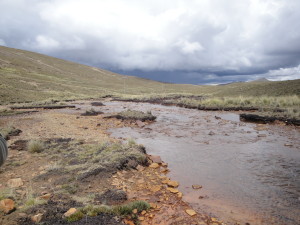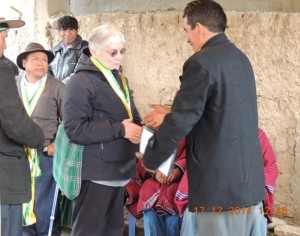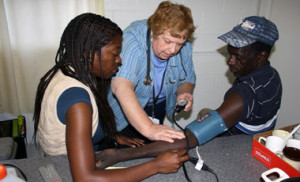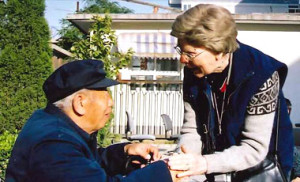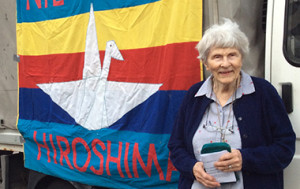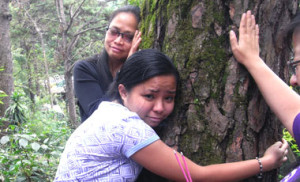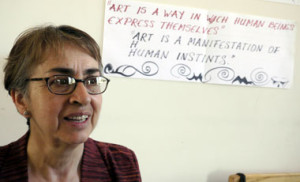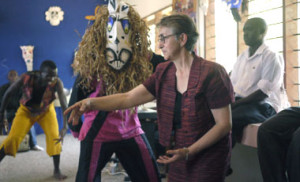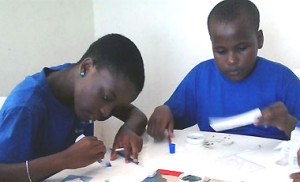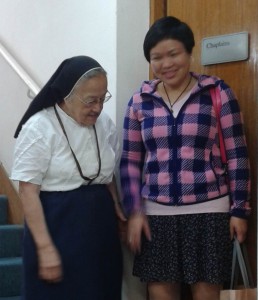From Maryknoll Magazine: In his apostolic exhortation The Joy of the Gospel, Pope Francis says, “Throughout the world, let us be in a permanent state of mission.” Maryknoll Sister Elizabeth Roach creatively puts those words into practice. Combining her experience as a teacher in Latin America with her passion for writing children’s stories, she brings God’s love to children worldwide through modern technology.
After a 50-year mission career that included teaching children in Bolivia and Peru, working with street children in Hawai,i and doing pastoral work in Panama, the Maryknoll Sister from Pittsburgh, Pa., was not ready to retire in 2002. She took a correspondence course in writing books for children.
Three of her books have been published in paperback and on Kindle. If I Am Worthy tells the story of Maryknoll Father William Kruegler, who gave his life to protect children in Bolivia. Secret Melody, she says, “is a gripping story about child immigrants.” Seven Stories is a collection of tales to be read to children ages 2 to 8.
“My stories are about children, animals and history,” says Sister Roach. “They are written to entertain children. Characters, of course, practice Christian values.”
As soon as Facebook and Twitter appeared, she saw them as other means to reach out with her stories to children whose parents cannot afford to buy books. Sister Roach considers it vital for children to have good stories in a world where so many children suffer. “Stories can lift them out of that suffering even for a short time and show them love and goodness and let them know that somebody cares,” she says. “That is Good News.”
She now has a blog called My Story Hour, where, she says, “I can tell stories to children all over the world because people are accessing the blog in so many places. I’ve had over 11,000 views since I started to put stories on my blog. Some weeks I have Iran, Latvia and Beijing. They can bring stories up in their own language and the translation can be made in about 80 different languages.” (
Sister Roach’s latest discovery is “Skype in the Classroom.” Again she had to learn the technology, but nothing daunts this missionary, who has been a Maryknoll Sister since 1946. “Skype in the Classroom” is a global classroom that has more than 78,000 teachers signed on to it.
With this program, she talks to a class of students who see her and she sees them. She shares her stories with the students and helps them develop skills to write their own stories as they ask her questions.
“In Catholic schools, grades K–2, I add a finger play about how Jesus teaches us to love everyone,” she says. “In public schools I cannot speak of God, but I believe the Gospel is proclaimed by reaching out to everyone in loving ways.” She cites as examples Pope Francis sending chocolate eggs to children with cancer and phone cards to street people. “Those are ways to make God’s love visible in our world,” she says.
She has given three storytelling sessions to kindergartners and first-graders in Ohio and New Jersey and lessons on “The Wonderful World of Writing” to fifth- and sixth-graders in Washington, Alabama and Iowa as well as New Zealand and Canada. She proudly shows thank you notes and drawings she received from one fifth-grade class. She marvels at the brightness of the questions of many and chuckles at the frankness of the remarks of others. One boy wrote, “Thank you for ‘skyping’ us. You sound like a good writer, but I have not heard of you.”
Sister Roach sees technology as a great means of extending mission to the farthest ends of the earth, and the wonderful thing about it, she says, is we can do it from home.
“I always want to be in mission,” she says. “I enjoyed showing children how God loves them during all my years in Bolivia, Peru, Panama and the United States. So, when I discovered cyber-ministry, I knew I could reach even more children as a global cyber missioner.”

